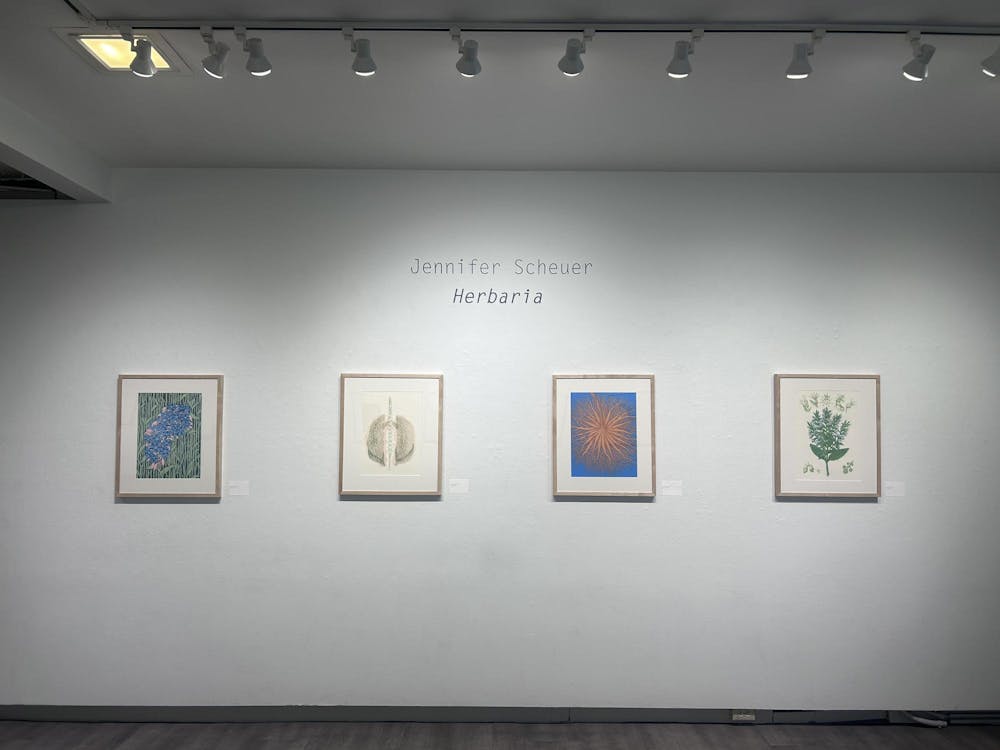Saint Mary’s College hosted a lecture on Thursday, Oct. 10 led by Jennifer Scheuer, an assistant professor of printmaking in the Rueff School of Design, Art and Performance at Purdue University.
Scheuer is a visual artist and printmaker. Her art addresses the themes of history, plants, the body and healing. She is a recipient of the 2022 DeHaan Artists of Distinction Award through the Indianapolis Arts Council. Throughout her lecture, Scheuer talked about her long-held interest in paper sculpture and book arts. Her new focus in her creative endeavors has led her to her exploration of artist books. Scheuer’s studio practice utilizes collections, archives and research.
“I view my artistic practice as that of a researcher. My work develops from talking with historians, reading books and visiting gardens and museums,” she said.
Scheuer described her work as cyclical, with several recurring themes throughout her collections.
“Each of the prints and drawings that I create, develops from texts and source materials,” she said. “It also has to do with structure and order and organization, which are significant in my interest as an artist, and the relationship to plants. Much of my interest is discussing ideas of healing spirituality and archives through the language and narrative of plants.”
Her work is drawn from English medical writer William Cole, who associated his work with the corporeal human body to plants, suggesting that “the flesh of a plant was like skin, the fibers were like nerves and the juice was like blood.”
Continuing to explain her exploration of the connection between plants and the human body, Scheuer said, “And while this looks like folklore, there’s many curious scientific connections that also exist. And research continues to explore the use of plants in medicine.”
Though her works are based on her extensive research, Scheuer’s goal is not scientific illustration.
“Rather, the drawings hold narratives and cues and symbols, and a sense of bodyness,” she said. The process of creating her compositions influenced Scheuer to take her work in another direction.
“I thought about other ways I could describe this phenomenon in a certain sense of truthfulness and wonder,” she said.
Scheuer explained her curiosity inspired her to turn to the medium of photography.
“I stepped away from the historical, and I began to document plants that look body-like, and parts of the body that look plant-like,” she said.
She used the collection to depict interspersing images of the environment to create a setting that was both human and plant.
Scheuer’s ideas can be summarized with the doctrine of signatures, the pseudoscientific belief that various herbs or plants which resemble a specific part of the body can treat whatever sickness is harming that body part.
“The doctrine of signature’s functions is a sort of visual language that has the potential to be recognized by the individual,” she said. “It’s also a theory about philosophical questions about the invisible and visible links between our bodies and the earth.”
She concluded her lecture by describing her art as a conversation about spirituality. “I use this story of plants and the doctrine of signatures and intent to talk about universality, about suffering and healing,” she said.
Scheuer’s works will be displayed in the Moreau Gallery at Saint Mary’s College from Oct. 2 through Nov. 7.










